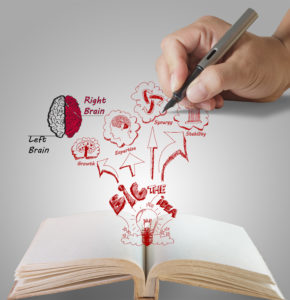Quick links, bringing you great articles on writing from all over the web.
I admit that when I first looked at this post by , I was didn’t think there was going to be much I could get from it. But Jami goes deep. There is a very important difference between the story and the plot, and that difference is what makes a great story. Check out the post at jamigold.com and see if you agree.
~ * ~
What’s the Difference between Plot and Story?

When we first start off as writers, if someone asks us about our story, we might launch into an overview of our story’s plot. It’s easy to think the plot is what our story is about.
Believe me, I know. I have several query letter drafts that took that road to rejection. *smile*
Yet one complaint I’ve heard from agents over the years is that many queries are too “plotty.” What does that mean?
With few exceptions, story isn’t the same as plot.
For this post’s image above, the plot event would be: man lost in a desert. The story behind it would be: man struggles to survive.
What’s the difference? Stick with me and find out. *smile*
Nouns vs. Verbs
Which sounds stronger and evokes more emotion?
- The sorority member stopped her luxury sports car in front of the three-story brownstone.
- The woman screeched her car to a halt in front of the house.
For many of us, we’re going to say the second sentence sounds stronger. We get a sense of action and urgency, which are emotional concepts.
Now take a closer look at those two sentences. They’re essentially the same idea—a woman is parking in front of a house.
The difference is that the first sentence concentrates on precise nouns:
- sorority member vs. woman
- luxury sports car vs. car
- three-story brownstone vs. house
The second sentence focuses on a strong verb:
- screeched vs. stopped.
That example isn’t meant to imply that we shouldn’t use precise nouns. In fact, we should use precise nouns and strong verbs. Instead, the example shows how verbs are the part of speech that add action, emotion, and narrative drive to our story.
~ * ~
If you liked this article, please share. If you have suggestions for further articles, articles you would like to submit, or just general comments, please contact me at paula@publetariat.com or leave a message below.
